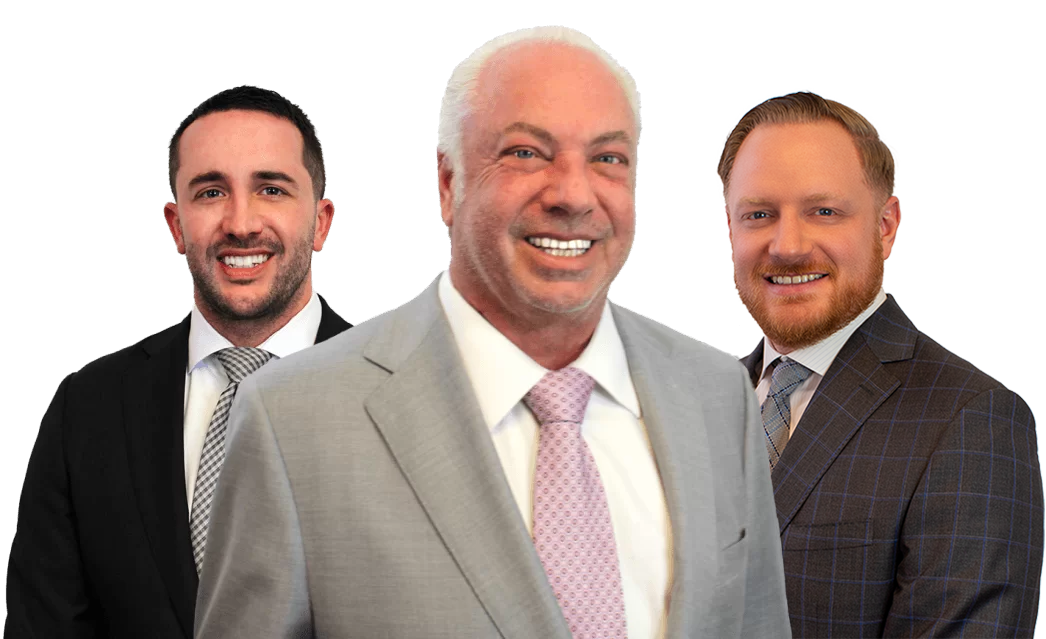After an accident, you may have suffered serious injuries. These injuries may have stopped you from returning to work and could affect your future earnings. New Jersey law entitles you to pursue compensation if the accident you were injured was someone else’s fault.
This is money awarded to you to help pay for the economic and non-economic losses you incurred due to your accident-related injury. Economic losses are verifiable, such as lost wages and a loss of future income.
What Is the Difference Between Lost Wages and Future Income?
Although they sound the same, lost income and loss of future income are two different types of income. A person who suffers a temporary disruption in their ability to go to work may be entitled to compensation that helps make up for the income they lose until they return to work again. This is called lost income.
 For example, after an auto accident-related injury, you may only be able to work two to three hours a day for several weeks instead of eight hours a day, five days a week. Lost wages compensation should cover the money you lost from when you became unable to work until you can return to work full-time.
For example, after an auto accident-related injury, you may only be able to work two to three hours a day for several weeks instead of eight hours a day, five days a week. Lost wages compensation should cover the money you lost from when you became unable to work until you can return to work full-time.
Some people suffer an accident-related injury that leaves them unable to work any job or limits the type of work they can do for the foreseeable future. In this instance, you may be awarded compensation for losing future income or earning capacity.
An award of this type assumes that if it had not been for the accident-related injury, you would have been able to continue in the same career and that you had a reasonable expectation of a specific salary or wage. When you cannot return to your career, compensation for loss of future income can help make up for the wages you will no longer be able to earn.
How to Prove Loss of Future Income
You must provide documentation to demonstrate that you have lost future income because of the accident-related injury. The evidence you provide must show the following:
- You cannot return to work or pursue your career path or have a diminished ability to earn an income.
- Your inability to return to work is directly related to your injuries in the accident.
- You must show what your future income potential would have been.
Each of these factors must be proved with documented evidence. For example, if you can work at the time of a lawsuit, your doctor must show reasonable evidence that your condition is medically expected to deteriorate and will, therefore, impact your ability to work. In a lawsuit, the court will also want evidence of specific factors that impact the court’s decision.
These include:
- Current information may impact your future income, such as age, occupation, work history, and earning history.
- Documented evidence of the severity of the injury and medical estimation of the likelihood that you will improve or deteriorate.
- Evidence of a temporary or permanent disability and how it was related to the accident.
- Documented evidence that you could not return to work between the accident and the trial. This can include paycheck stubs, documentation from your employer, W-2 forms, and other proof of income.
- Evidence that your accident-related injury left you unable to complete your job responsibilities. For example, you may have lost your right hand, which would be necessary if your work involved a mouse and keyboard.
 Your attorney will decide whether witness testimony is necessary to provide evidence. Expert testimony is helpful for victims who work in non-traditional roles. Experts could include a vocational rehabilitation expert or an expert in your professional field who can testify to the salary trends and future job prospects likely based on your injuries.
Your attorney will decide whether witness testimony is necessary to provide evidence. Expert testimony is helpful for victims who work in non-traditional roles. Experts could include a vocational rehabilitation expert or an expert in your professional field who can testify to the salary trends and future job prospects likely based on your injuries.
What If I’m Self-Employed or a Student?
It can be more difficult to prove the loss of future income when you’re self-employed. Income for self-employed individuals often fluctuates more than for traditional workers. Using past financial records can help show trends in annual income. Considering the current market, your attorney may also find expert witnesses who can testify to how the business would perform in the future.
Students have some of the same difficulty proving a loss of future income. People just starting their careers must show their education level, intentions, and goals for the future. Even without evidence of past earnings or work performance, an experienced personal injury attorney could present a strong case for lost future earnings.
Contact Brach Eichler Injury Lawyers for Help Today
If you were injured in an accident that was not your fault, you might be entitled to compensation that will help cover your lost wages and future income. You must work with an experienced New Jersey personal injury attorney who can fight for your rights and represent you while negotiating with an insurance company or presenting your case before the court.
The award-winning attorneys of Brach Eichler Injury Lawyers recognize that it is about getting results for you. Our firm has recovered over $700 million for our clients. We understand accident victims’ fears and concerns as they consider the future. Contact our office today at (973) 364-8300 for a free consultation and case evaluation. You’ll sit down with one of our experienced attorneys who can review your case, answer your questions, and ease your fears.
Written by: Brach Eichler Injury Lawyers Last Updated : December 19, 2025We are the trial attorneys with the experience and knowledge to get you the results you deserve. At Brach Eichler Injury Lawyers, we take time to get to know you, as well as your case. We are committed to excellence. It is important for our team to understand your fears, concerns and expectations. We are always available to answer any questions, and are willing to come to you if you are unable to come to us.
Contact Your New Jersey Personal Injury Attorneys
